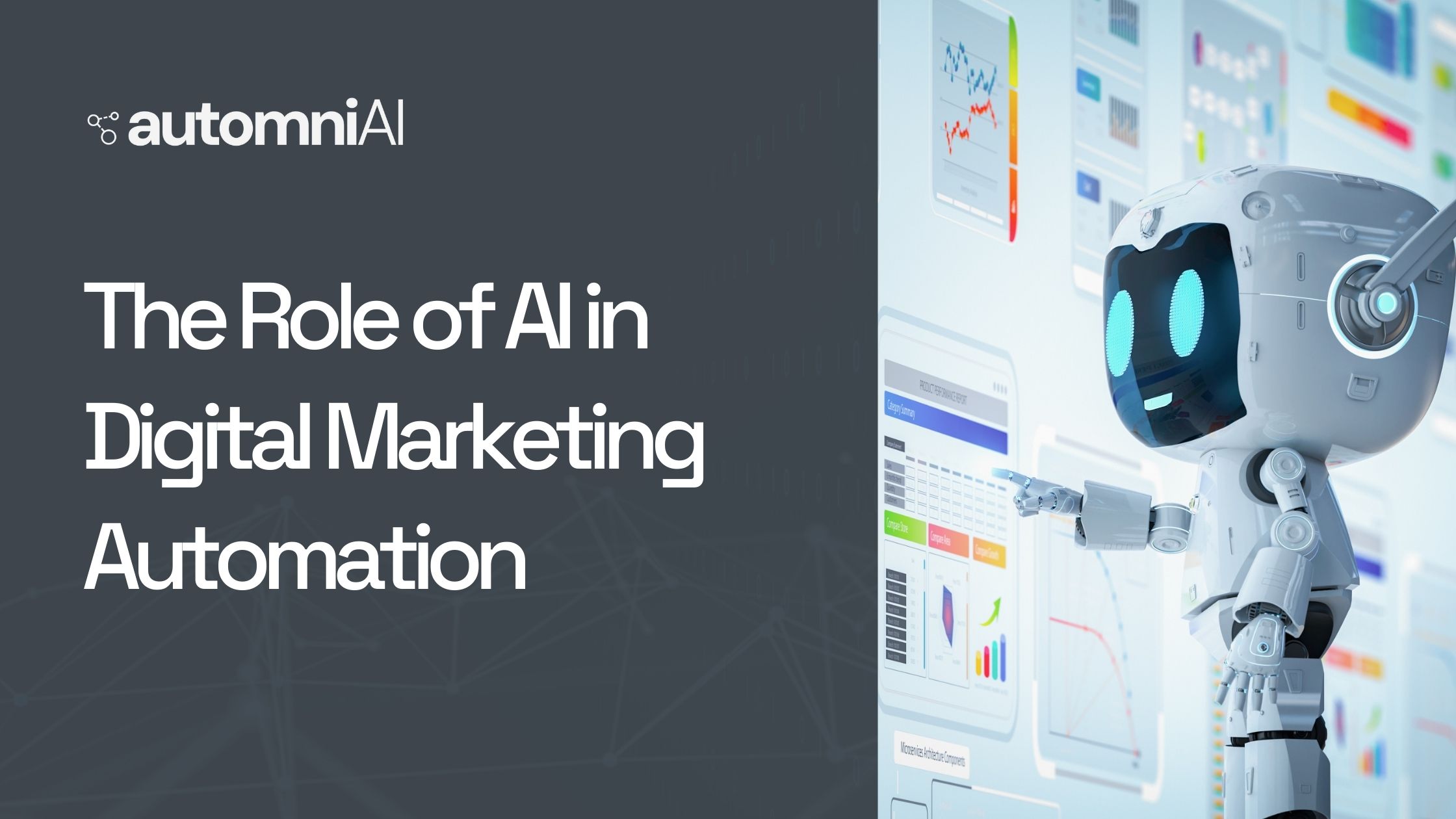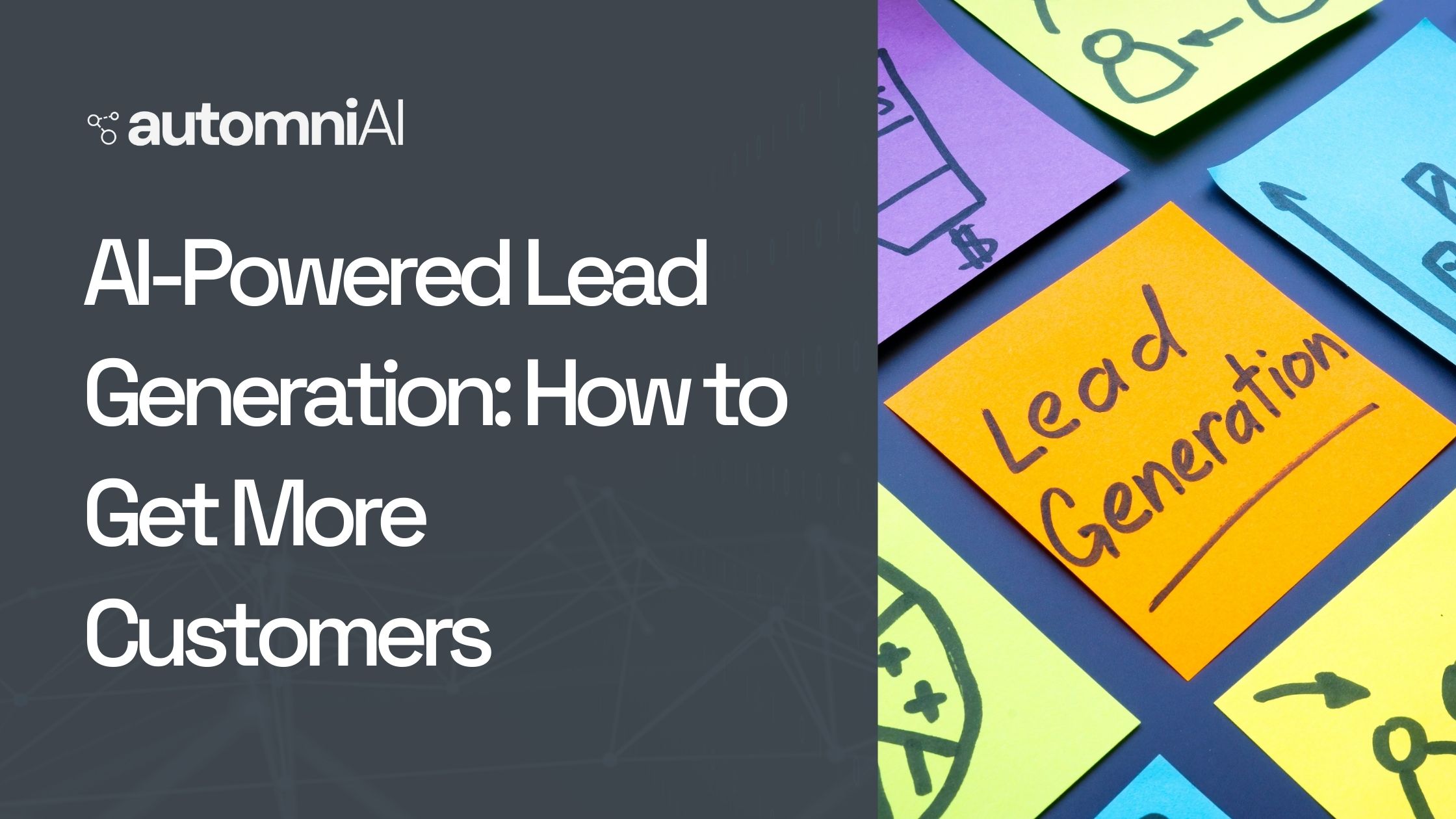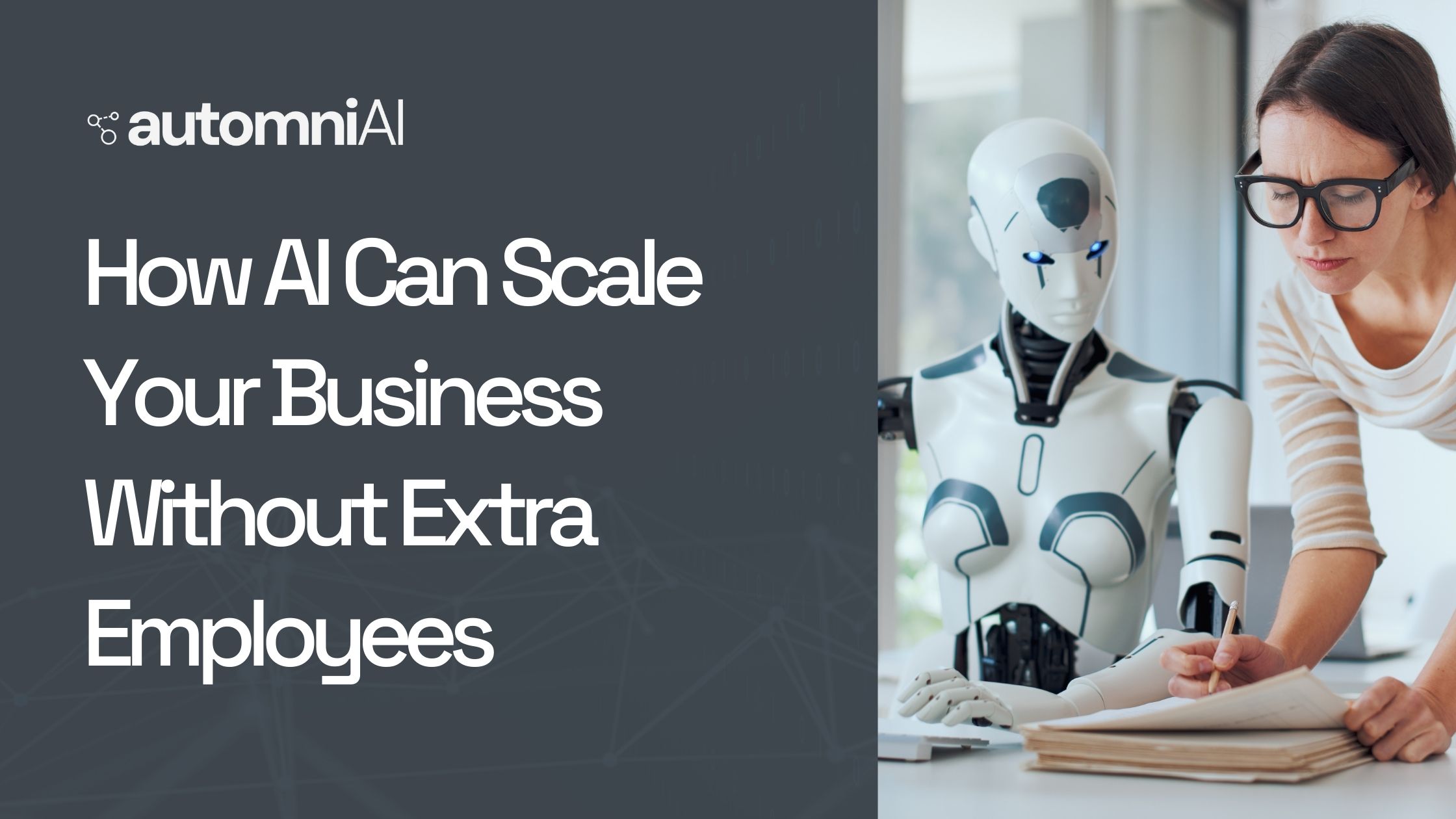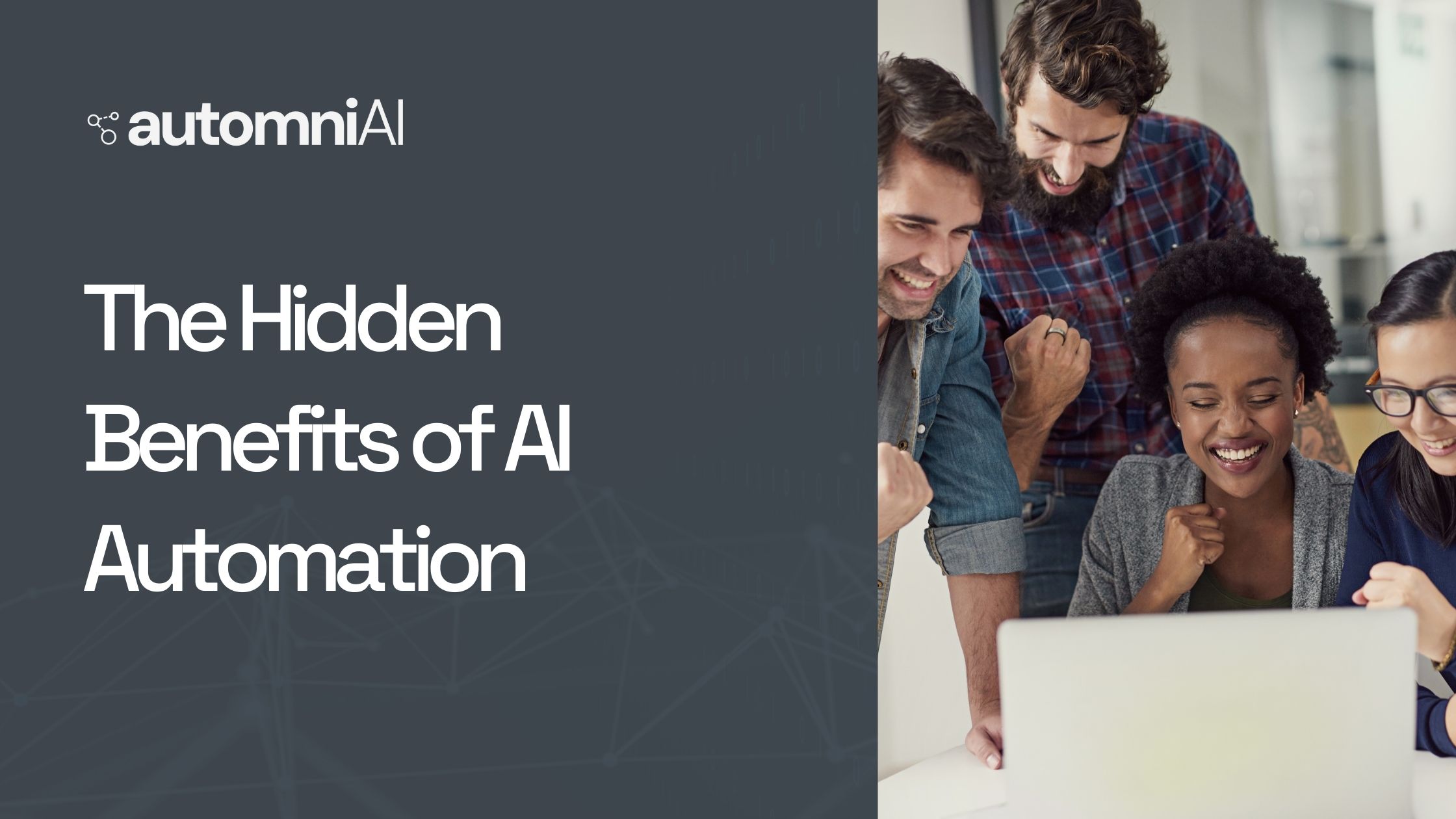In today’s digital world, businesses need more than just traditional marketing to attract and retain…

The Role of AI in Digital Marketing Automation
1. Introduction
Artificial Intelligence (AI) is revolutionizing the world of digital marketing by automating complex tasks, enhancing customer experiences, and optimizing marketing efforts. With AI, marketers can leverage data-driven insights to create more personalized, effective campaigns that drive engagement and sales.
In today’s competitive digital landscape, automation plays a crucial role in marketing success. From chatbots handling customer queries to AI-driven content generation, automation enables brands to operate efficiently while delivering high-quality experiences. This article explores the role of AI in digital marketing automation and how businesses can leverage it for better results.
2. Understanding AI in Digital Marketing
What is AI in Digital Marketing?
AI in digital marketing refers to the use of artificial intelligence technologies such as machine learning, natural language processing, and predictive analytics to automate and optimize marketing tasks. AI helps businesses analyze vast amounts of data, recognize patterns, and make intelligent decisions that improve marketing performance.
How AI is Transforming Traditional Marketing Strategies
Traditional marketing relies heavily on manual processes and human intuition, which can be time-consuming and prone to errors. AI transforms marketing strategies by:
- Automating repetitive tasks like email marketing and social media posting
- Enhancing customer segmentation and targeting
- Providing real-time insights for data-driven decision-making
- Personalizing marketing messages based on user behavior
By leveraging AI, businesses can execute highly efficient marketing campaigns that reach the right audience at the right time.
3. Key Benefits of AI in Digital Marketing Automation
Increased Efficiency and Productivity
AI automates repetitive marketing tasks such as email campaigns, social media scheduling, and data analysis. This frees up marketers to focus on strategy and creativity, leading to greater productivity.
Improved Customer Targeting and Personalization
AI helps businesses analyze customer behavior and preferences, allowing for highly personalized marketing campaigns. AI-driven recommendations ensure that customers receive relevant content, increasing engagement and conversion rates.
Enhanced Data Analysis and Insights
AI processes massive amounts of data quickly, identifying trends and patterns that would take humans much longer to recognize. This enables businesses to make informed marketing decisions and optimize campaigns for better results.
4. AI-Powered Marketing Tools
Chatbots and Virtual Assistants
AI-powered chatbots handle customer inquiries in real time, providing instant support and improving customer satisfaction. Popular examples include:
- Facebook Messenger bots
- WhatsApp AI chatbots
- Website live chat assistants
AI-Driven Email Marketing
AI optimizes email marketing by:
- Analyzing user behavior to send personalized emails
- Automating follow-up emails based on engagement levels
- Generating subject lines and content that improve open rates
Predictive Analytics Tools
Predictive analytics uses AI to forecast customer behavior and trends. Tools like Google Analytics and HubSpot help marketers predict which strategies will yield the best results.
5. Personalization and Customer Engagement with AI
AI-Driven Recommendations
AI-powered recommendation engines suggest products or content based on user preferences. This technology is widely used by platforms like Amazon and Netflix to enhance user experience.
Behavioral Analysis for Personalized Marketing
AI analyzes user behavior across various touchpoints, allowing businesses to deliver highly targeted ads and content. This increases engagement and drives conversions.
AI-Powered Content Creation
AI tools like Jasper and Copy.ai generate blog posts, social media captions, and ad copy, reducing content creation time while maintaining quality.
6. AI in Social Media Marketing
Automated Social Media Posting and Scheduling
Managing multiple social media platforms manually is time-consuming. AI-powered tools like Buffer, Hootsuite, and Sprout Social automate scheduling, ensuring consistent posting at optimal times for maximum engagement. These tools analyze audience behavior and determine when posts are most likely to receive high interaction rates.
AI-Driven Sentiment Analysis
AI helps brands understand customer sentiment by analyzing comments, reviews, and mentions on social media. Sentiment analysis tools like Brandwatch and MonkeyLearn detect positive, neutral, or negative feedback, allowing businesses to adjust their strategies accordingly.
Chatbots for Social Media Interactions
AI chatbots on social platforms like Facebook Messenger and Instagram respond to customer inquiries instantly, improving engagement and customer satisfaction. These bots can also assist in lead generation by answering questions and guiding users toward a purchase.
7. AI in Content Marketing and SEO
AI-Driven Content Generation
AI-powered platforms like Jasper, Copy.ai, and Writesonic generate high-quality blog posts, product descriptions, and social media content in minutes. While AI cannot replace human creativity entirely, it enhances efficiency by assisting with content ideation and drafting.
AI-Powered SEO Optimization
SEO tools like Clearscope and Surfer SEO analyze top-ranking content and provide recommendations on keyword usage, readability, and content structure. AI ensures that content aligns with search engine algorithms, improving rankings and organic traffic.
Voice Search Optimization with AI
With the rise of voice search, AI-powered SEO tools help businesses optimize content for conversational queries. AI analyzes long-tail keywords and voice search patterns to enhance content discoverability on platforms like Google Assistant and Siri.
8. AI in Paid Advertising
AI-Based PPC Campaign Management
AI optimizes Pay-Per-Click (PPC) campaigns by analyzing vast amounts of data to determine the best bidding strategies, target audiences, and ad placements. Platforms like Google Ads and Facebook Ads use AI to automate budget allocation for maximum ROI.
Programmatic Advertising
Programmatic advertising uses AI to automate real-time ad buying and placement. AI determines the best audience segments and platforms to display ads, ensuring cost-effective and high-impact ad placements.
Real-Time Bidding and AI Optimization
AI-driven real-time bidding (RTB) allows businesses to bid for ad space in milliseconds, ensuring that ads are shown to the most relevant users. AI continually adjusts bids based on engagement metrics and conversion rates.
9. AI for Email Marketing Automation
AI-Generated Subject Lines and Email Copy
AI tools analyze past email performance to generate engaging subject lines and email content that maximize open and click-through rates. Tools like Phrasee and Persado use AI-driven insights to optimize messaging.
Predictive Email Targeting
AI segments email lists based on user behavior, ensuring that recipients receive content tailored to their interests. Predictive analytics determine the best time to send emails for maximum engagement.
Automated A/B Testing for Email Campaigns
AI automates A/B testing by continuously analyzing email variations and determining which performs best. This eliminates guesswork and ensures optimized email marketing strategies.
10. AI-Driven Analytics and Decision-Making
AI-Powered Data Collection and Interpretation
AI automates data collection from multiple sources, including websites, social media, and customer interactions. Tools like Google Analytics and IBM Watson analyze this data to provide actionable insights.
Real-Time Performance Tracking
AI-powered dashboards track campaign performance in real time, allowing marketers to adjust strategies immediately for better results. AI detects trends and anomalies that could impact campaign success.
AI’s Role in ROI Optimization
AI helps marketers maximize return on investment (ROI) by analyzing data and recommending budget allocation adjustments. This ensures that marketing spend is directed toward the most effective channels.
11. Challenges and Limitations of AI in Marketing
Data Privacy Concerns
AI relies on vast amounts of customer data, raising concerns about data security and privacy. Businesses must comply with regulations like GDPR and CCPA to protect user information.
The Risk of AI Bias
AI algorithms can develop biases based on the data they analyze. This can lead to unfair targeting and inaccurate marketing predictions. Regular monitoring and ethical AI practices are essential to mitigate bias.
Over-Reliance on Automation
While AI enhances marketing efficiency, over-reliance on automation can reduce human creativity and emotional intelligence in campaigns. A balance between AI automation and human input is crucial for successful marketing strategies.
12. Future Trends of AI in Digital Marketing
The Rise of AI-Generated Video Content
AI-powered video creation tools like Synthesia and Pictory enable brands to produce high-quality videos without expensive production costs. AI enhances video editing, voiceovers, and script generation.
Hyper-Personalization with AI
AI will take personalization to the next level by analyzing real-time user data to create dynamic, individualized marketing experiences. Future AI-driven marketing campaigns will offer hyper-personalized recommendations and interactions.
AI and Augmented Reality (AR) in Marketing
The integration of AI and AR will revolutionize product visualization. Brands will use AI-powered AR experiences to allow customers to try products virtually before making a purchase.
13. Implementing AI in Your Digital Marketing Strategy
Steps to Integrate AI into Marketing Campaigns
- Identify areas in marketing that can benefit from automation.
- Choose AI-powered tools that align with business goals.
- Train marketing teams to effectively use AI tools.
- Analyze AI-generated data to refine strategies.
- Continuously monitor and optimize AI-driven campaigns.
Choosing the Right AI Tools
Businesses should evaluate AI tools based on features, integration capabilities, and ease of use. Popular AI marketing tools include:
- Email Marketing: Mailchimp, HubSpot
- Content Marketing: Jasper, Copy.ai
- SEO & Analytics: SEMrush, Ahrefs
- Chatbots: Drift, Intercom
Measuring the Success of AI-Driven Marketing Efforts
Success metrics for AI-driven marketing include:
- Customer engagement rates
- Conversion rates
- ROI on automated campaigns
- Website traffic and lead generation
14. Case Studies of Successful AI Implementation in Marketing
Example 1: Netflix’s AI-Powered Recommendations
Netflix uses AI to analyze user preferences and recommend personalized content. This has significantly improved customer retention and engagement.
Example 2: Sephora’s AI Chatbot for Beauty Recommendations
Sephora’s chatbot uses AI to provide personalized product recommendations based on user preferences and past purchases. This has increased sales and customer satisfaction.
Example 3: Coca-Cola’s AI-Driven Ad Targeting
Coca-Cola utilizes AI to analyze social media trends and user sentiment, optimizing ad campaigns for better audience engagement.
15. Conclusion
AI has revolutionized digital marketing by automating processes, personalizing customer interactions, and optimizing marketing efforts. From content creation and SEO to social media management and paid advertising, AI enhances efficiency and effectiveness in marketing campaigns.
However, businesses must balance AI automation with human creativity to ensure ethical and engaging marketing strategies. As AI technology continues to evolve, the future of digital marketing will become even more data-driven, personalized, and efficient.
FAQs
1. How does AI improve customer engagement in digital marketing?
AI analyzes customer behavior and preferences to deliver personalized recommendations, targeted ads, and automated responses, enhancing user engagement.
2. What are the best AI tools for digital marketing?
Some top AI marketing tools include HubSpot, Jasper, SEMrush, ChatGPT, and Hootsuite for automation, content creation, SEO, and analytics.
3. Can AI completely replace human marketers?
No, AI enhances marketing efficiency but lacks human creativity and emotional intelligence. A combination of AI automation and human expertise is essential.
4. Is AI marketing expensive?
AI marketing tools vary in cost, with many offering affordable plans. Businesses can start with budget-friendly AI solutions and scale up as needed.
5. What is the future of AI in digital marketing?
AI will continue to enhance personalization, automate processes, and integrate with emerging technologies like AR and voice search for advanced marketing solutions.




Comments (0)